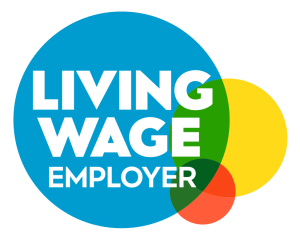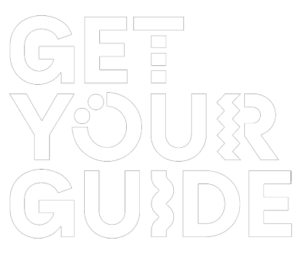How colonial is your curiosity? And how colonial is mine or anyone’s curiosity? And if our present-day academic standards and disciplines are a direct legacy of colonial processes of data collection and knowledge dissemination, how colonial is our scientific, educational and personal curiosity?
This is a key question that plagued me as I worked on the tour “Curiosity and Colonialism” for Uncomfortable Oxford. This blog explores the development of this tour, its educational objectives, and the narratives it aimed to unravel in its exploration of the Natural History Museum and the Pitt Rivers Museum. It also reflects on the tour’s successor, the “Unnatural Histories” tour launching on 22 June 2024.

Like most good stories in England, this one begins in a pub. I remember having this conversation with UnOx’s Operations Director Paula Larsson, as we contemplated the idea of a new project to succeed our “Oxford and Empire” tour; one that would be solely focused on museums and make our tours more all-weather for those who have issues with cold, heat, and wet (although we do run in all weathers).
That very afternoon, I read a piece titled ‘Curiosities Sent to Oxford’: The original documentation of the Forster collection at the Pitt Rivers Museum. It details the myriad items donated by father and son duo Reinhold and George Forster to Oxford, after being collected as part of their employment as naturalists on the second voyage of Captain James Cook from 1772 to 1775. This collection has been named the most important of the Forster collections and is recorded as a “Catalogue of Curiosities.” So, while we discussed designing a distinct tour, curiosity and its intimate involvement with colonial enterprises were on my mind, leading to the naming of the tour as “Curiosity and Colonialism” (who doesn’t love alliteration?). And so the seed of the tour was sown.
What is Colonial Curiosity?
The “Age of Exploration”, also referred to as the “Age of Discovery”, began in the 15th century and marked a period when European powers ventured into territories unknown to them. While these voyages were driven by a thirst for knowledge and discovery, they were equally motivated by desire for economic gain and territorial expansion. The scientific curiosity that led to significant advancements in various fields was often funded by colonial enterprises. As explorers charted new lands, they also facilitated the exploitation of indigenous populations and resources.
Oxford, as a centre of learning and scholarship, played a pivotal role in this process. The university’s colleges were beneficiaries of colonial wealth, and many of its scholars were directly involved in colonial administration and research, as many of Uncomfortable Oxford’s tours discuss. However, their pursuit of knowledge was selective and biased, focusing only on what they found interesting and contributing to stereotypes. Museums and even our everyday academic disciplines reflect this selective curiosity, reinforcing incomplete understanding.
The colonial nature of our curiosity is best reflected in our staunch refusal to question it. This involves creating ideas of singular homogenous truths and narratives, and expecting other people, cultures and communities to adhere to said standards. One example is the use of Latin in scientific discourses. Requiring scientists to write, publish and catalogue in specific languages often historically allowed narratives in Latin or even English to overwrite those written in other indigenous languages. This is most evident in the naming of organisms, processes and even local medicinal cures. These natural and even artificial objects existed and were studied by local populations before they were studied by scientists involved in colonial enterprises. However, the “discovery” credit is often given to the colonial researcher. When linguistic and disciplinary standardisation is imposed, ideas are systemically made “unknowable” and subject to our “curiosity” until they are finally rendered knowable, but only when written and published in the language that the colonial centre understands.

The Research and Development Process
The aim of our tour was to acknowledge the complex nature of curiosity as both collectors and consumers of knowledge and, more importantly, question it.
More than “telling” people how colonial their way of thinking was, the intention of this tour was to make them interrogate their own knowledge, education and curiosity, not simply in the context of the tour and museum but beyond. This entailed equipping them with provocative questions such as:
- What are we taught to be curious about traditionally, and why?
- Can this curiosity be discriminatory in how it approaches different kinds of “knowledge”?
- What is the implication of calling an item – object or manuscript – a “curiosity”?
The tour explored these questions by collaboratively discussing the history of the two museums and their respective collections in the one-and-a-half hours we had at our disposal. There aren’t many bespoke museum tours in Oxford that can cover two museums in 90 minutes, but this was Uncomfortable Oxford’s unique offering.
I began researching and writing the tour under the guidance of Uncomfortable Oxford’s research director, Olivia Durand. I still remember writing a detailed message to her requesting her to take me off this tour and let me contribute to the redevelopment of the ‘Oxford and Empire’ route (which we were working on for another client), because I felt more comfortable with open spaces than museums. She said a firm ‘no’ and explained that the more I explore the themes, the more confident I will become with the subject matter. I am grateful to her for that judgement call that day because the persistence of colonial legacies in our very curiosity is a key area of research interest for me today, strengthened by conducting research for the tour.
During the course of our extensive research, Olivia and I spoke with researchers and scholars to identify key figures, events, and cases that exemplified the nexus of curiosity and colonialism. Archival materials, personal letters, and historical texts were meticulously examined to construct a comprehensive narrative. We also attended some fascinating lectures to populate the tour with due credits. Our dodo stop, on extinction and divinity, is based on a lecture delivered by Professor Sadiah Qureshi in the Natural History Museum in 2023 on her upcoming book on histories of extinction. As a guide, I found it a very informative process and opportunity as I worked on the tour, understanding the rigorous grounding and research behind each word in each stop in a single tour. Olivia is a firm but very helpful research guide, one who will not let you give up on yourself while ensuring that our research quality standards are maintained while being accessible!
The next task is route planning. It is not just about writing a detailed and dense script; perhaps the critical component of the process for me is its execution, which means the tour itself cannot be dense and detailed, because its purpose is to promote accessibility of knowledge in order to not isolate people even further. After trial runs, trial routes and a sample tour for curators and staff members of both the museums, we had a tour and a route we were satisfied with.
Reception and Aftermath: Moving Towards Unnatural Histories
The success of the tour lies in those whom it reached. Importantly, after almost a year of our running “Curiosity and Colonialism”, Oxford Natural History Museum (NHM) approached and funded us to write a new tour exclusively for their museum. Receptiveness here is a two-way street, in that NHM began with being actively involved in the development of the first tour, which Uncomfortable Oxford took a chance on and self-funded, but also in that they were open to exploring the potential of the tour as an educational, accessible and engaging activity for visitors of most ages that come to the museum. It is essential to credit the museum for seeing this as a conversation that is critical to have, and one that they believe Uncomfortable Oxford can facilitate well.

The new tour, titled “Unnatural Histories” has several ideas translated from the previous tour which shows how tours never really disappear in Uncomfortable Oxford; they bide their time till they are either revived or borrowed from to create content that becomes more relevant for our audiences. I had the privilege of being on the research team again, led by Olivia and joined by the wonderful Ramsha, which added a new collaborative and disciplinary angle to the development of the latest tour.
The name of the tour, suggested by Paula and endorsed by the research team, invites the tour audience to once again question their curiosity. In this case, the key question is: how unnatural is their scientific curiosity? How did it develop? Who nurtured it with what sources and narratives, and in what context?
By flipping the lens from a ‘natural’ approach to an ‘unnatural’ construction, we explore the historical and ideological underpinnings of natural history museums, revealing a narrative shaped by human influence, bias and selective choice. All we expect from the audience is to continue being curious about the nature of their curiosity as they venture on our “unnatural” tour.
Written by Devika
To experience our “Unnatural Histories” tour for yourself, why not book a place now? The first tour takes place on 22nd June 2024, and it will run regularly thereafter. Moreover, our “Uncomfortable Science” tour of the Whipple Museum in Cambridge tackles similar themes of colonial knowledge-production and the natural world. Finally, if you’d like to learn more about Captain Cook’s voyages and their contested legacy beyond the Forster Collections, you can read more here.





